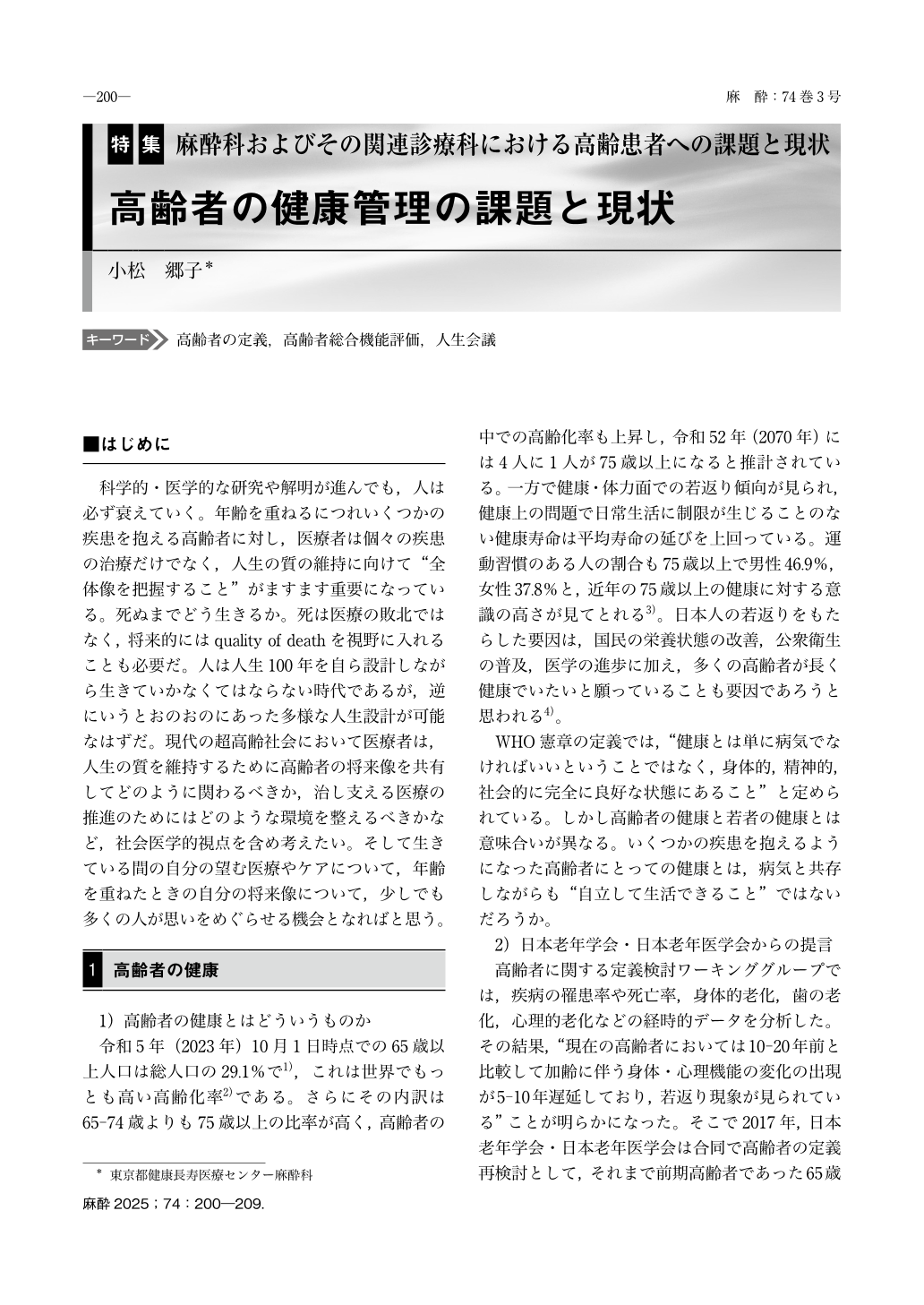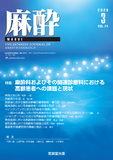Japanese
English
- 有料閲覧
- Abstract 文献概要
- 1ページ目 Look Inside
- 参考文献 Reference
はじめに
科学的・医学的な研究や解明が進んでも,人は必ず衰えていく。年齢を重ねるにつれいくつかの疾患を抱える高齢者に対し,医療者は個々の疾患の治療だけでなく,人生の質の維持に向けて “全体像を把握すること” がますます重要になっている。死ぬまでどう生きるか。死は医療の敗北ではなく,将来的にはquality of deathを視野に入れることも必要だ。人は人生100年を自ら設計しながら生きていかなくてはならない時代であるが,逆にいうとおのおのにあった多様な人生設計が可能なはずだ。現代の超高齢社会において医療者は,人生の質を維持するために高齢者の将来像を共有してどのように関わるべきか,治し支える医療の推進のためにはどのような環境を整えるべきかなど,社会医学的視点を含め考えたい。そして生きている間の自分の望む医療やケアについて,年齢を重ねたときの自分の将来像について,少しでも多くの人が思いをめぐらせる機会となればと思う。
Although we live in an age in which people can plan their own 100-year lifespan, aging is inevitable and cannot be resisted. For the elderly, being healthy means being able to live independently while coexisting with illness. It is necessary to not only prevent dementia but also to reconsider the living environment in which elderly individuals with dementia can coexist with society. It is important for medical professionals to understand the overall picture of every patient in order to maintain the patient’s quality of life, and to not simply treat individual illnesses. It is also necessary to consider how people want to live until their death and the quality of death in the future. How should we share the future vision of the elderly and interact with them? What types of environments should be created to promote medical care that cures and supports this segment of society? We must also consider from a socio-medical perspective the difficulties of promoting advanced care planning(ACP), which involves thinking about the medical care and support that individuals desire while alive and their vision for the future as they age, as well as how we can interact with the elderly when sharing their vision for the future.

Copyright © 2025 KOKUSEIDO CO., LTD. All Rights Reserved.


